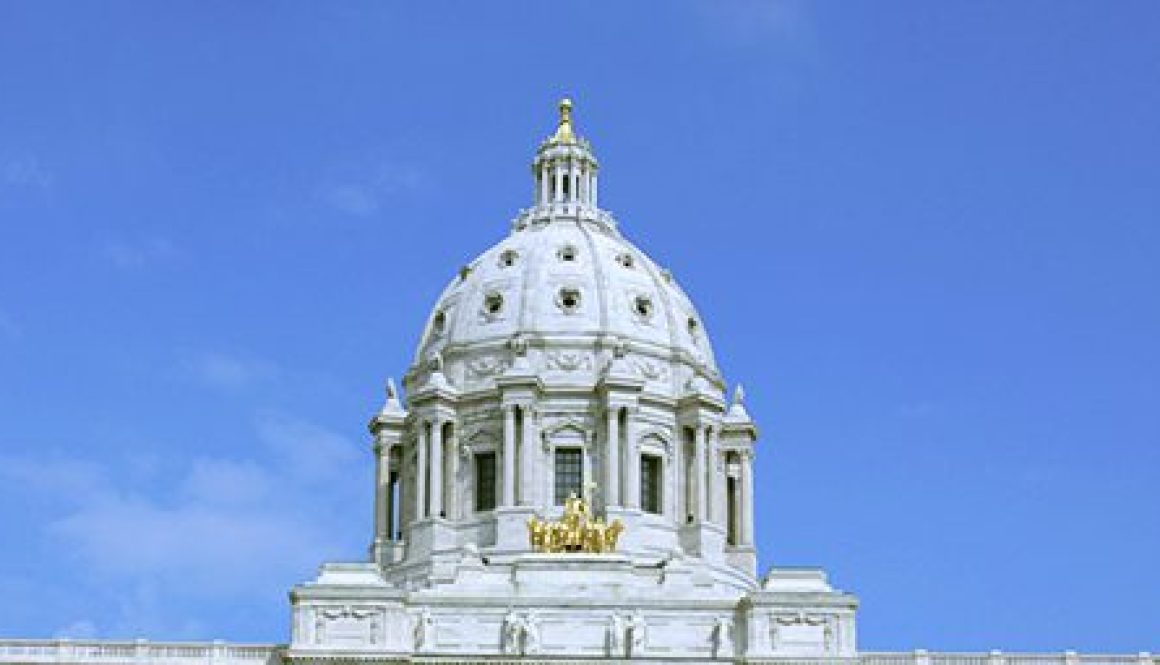Special Elections and Campaign Announcements
Minnesota is experiencing considerable political turnover this year, with multiple special elections underway and several high-profile legislators launching campaigns for higher office.
This week, primaries were held for two vacant State Senate seats to be filled in a special election. In Senate District 49, vacant since the unexpected death of Sen. Bruce Anderson, Republican-endorsed candidate Michael Holmstrom secured the nomination. In Senate District 47, empty since the resignation of Sen. Nicole Mitchell, Democratic endorsee Rep. Amanda Hemmingsen-Jaeger won her primary, defeating fellow lawmaker Rep. Ethan Cha. Both special elections are scheduled for November 4.
Another key race is coming up next month. The special election to fill the seat of Speaker Emerita Melissa Hortman, who was tragically assassinated in June, will take place on September 16. That contest will feature Democratic candidate Xp Lee and Republican Ruth Bittner.
More special elections may follow, depending on the outcomes of two upcoming local races this fall that feature sitting legislators. Among them:
- Sen. Omar Fateh is running for mayor of Minneapolis. His endorsement by Minneapolis Democrats was revoked last week, after controversy over the convention process.
- Rep. Kaohly Her is challenging Mayor Melvin Carter for mayor of St. Paul.
Looking further ahead, the 2026 election cycle is already beginning to take shape. Rep. Kristin Robbins has declared her candidacy for governor, while Rep. Cedrick Frazier has announced his campaign for Hennepin County Attorney.
Sen. Eric Pratt is joining fellow Sen. Matt Klein in running for Congressional District 2, aiming to succeed Rep. Angie Craig, who is launching a bid for the U.S. Senate.
Rep. Ben Bakeberg has entered the race for Sen. Pratt’s current senate seat in SF 54.
Capitol Security
The Advisory Committee on Capitol Security met on August 20 to discuss potential safety upgrades at the Minnesota Capitol in response to the June shootings that claimed the lives of Speaker Emerita Melissa Hortman and her husband and left Sen. John Hoffman and his wife injured.
Chaired by Lt. Gov. Peggy Flanagan, the committee began developing recommendations for the Legislature to consider during the upcoming session. Members received an overview of current safety measures from security staff and discussed possible improvements.
Proposals discussed by members included installing metal detectors, banning firearms on the premises, requiring bag checks, and encouraging cultural shifts such as heightened situational awareness and reducing inflammatory rhetoric. Rep. Jim Nash emphasized that many changes will take time because they need legislative approval. Gov. Tim Walz, while not on the committee, voiced support for reforms that balance public access with enhanced security.
The committee will reconvene next month to continue the discussion. In the meantime, the Department of Public Safety has already implemented several measures, including reducing the number of public entrances, installing alarms on external doors, and hiring additional security officers. A third-party review of Capitol security is also expected later this year to further guide the process.
UMN Board of Regents
|
Normally the Board of Regents (the University of Minnesota’s governing body) is appointed by the state legislature. However, the legislature failed to fill four vacant seats during the most recent session, so it was left up to Gov. Walz to temporarily fill the vacancies. He appointed four new interim regents this month, which include a former U.S. ambassador to Norway, a former United Nations food aid counselor, a doctoral student and an employee search group executive.
The appointments were not without controversy, having drawn criticism from both Republicans and some progressive Democrats. House Republican Floor Leader Harry Niska expressed concerns that “the seats are being handed out as rewards to campaign donors rather than being filled on merit.” Republicans have also argued that gubernatorial appointments in this situation bypass the Legislature’s constitutional role in selecting regents.
Sen. Omar Fateh, the Democratic chair of the Higher Education committee tasked with recommending candidates for the legislature to approve, criticized the governor for selecting “a handful of wealthy, well-connected lobbyists who worked to shut student voices out of the board.”
|
| |
|
|
|
State Budget Update
|
The July Revenue and Economic Update from Minnesota Management and Budget (MMB) showed the state’s general fund revenues totaled $2.194 billion in July, falling $62 million, or 2.8% below the previous forecast in February. Since July marks the first month of Fiscal Year 2026, this shortfall also reflects the fiscal year’s opening performance.
The largest drop came from individual income tax receipts, which were $51 million below projections. Corporate tax collections also fell short by $23 million. On a more positive note, sales tax revenue exceeded expectations by $3 million, and other miscellaneous revenues came in $10 million higher than forecast.
A more complete picture of state finances will be available in the October Revenue and Economic Update, which will include data from July through September.
|
| |
|
|
|
Ewald Consulting Government Relations Toolkit
Starting this month, we’ll share content to help you better understand the legislative process and how to engage effectively. From decoding how the Legislature works to learning how to advocate for your priorities, these resources are designed to support your advocacy every step of the way.
This week’s articles go over what work in the interim between legislative sessions looks like, and an overview of the legislative rule making process.
Article Links:
Work in the Interim
Legislative Rulemaking
|



